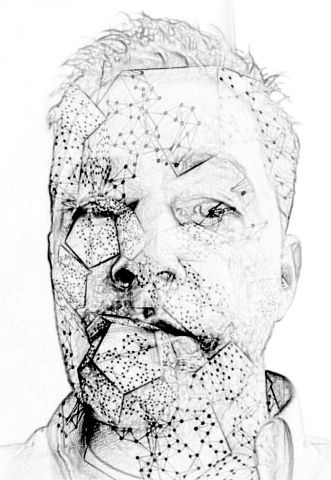As the term draws to an end, I find myself sat in my Art room waiting for the next group to come in for their final lesson of the year, contemplating what I want to write in this post. I should be writing Year 11 reports, but I’m a “last minute” merchant… I find it so tedious this late in the year… I know I’ll get them done… I’ve never missed a deadline…
I feel disillusioned. My exam board has once again failed to send out my papers so I can’t do my prep work for my pupils over the holiday… an ICT oversight in transferring data they tell my exams officer – no human error. It is unlikely that I will receive them the first week back in the new term and after a catalogue of errors from them, I’m left wondering how much the system does really care about young peoples education, development and progression?
The whole notion of examination brings me quite poignantly back to exemplars and leaves me brooding the question; what makes great Art?
Again!
Increasingly I am of the opinion that what is expected of me isn’t the viewpoint that I should be teaching pupils to make Art, but instead I should be training them in how to pass a GCSE. The frustration that brings out in me leads to dark moods and complete disenchantment with the whole education establishment. So I return to favouring the artist. My preference becomes making.
Am I alone in this?
Of late I have been championing change… reform… fresh starts. But it’s far more intricate than that. The artist side of me questions the possibility of teaching Art… argues that its an innate part of all of us. We know intuitively what appeals to us, the flavours that we enjoy and that which we dislike. Is Art so much about the making, or could it be about the appreciation? Can either be taught? How do I see the images my pupils carry around in their heads? How do I bring them forth and enable students to reproduce them to their satisfaction?
I suspect these are timeless questions and I waste my time in pursuit of their answers, however I seek excuses to justify the darkness of my pique and prophecy of retirement. Richard Eyre writing in The Independent offers some interesting observations; –
I think Richard Eyre replaces my word “Worth” with “Ambition”. I love what he writes, “a work of art should introduce something that didn’t exist before”… “It’s nothing if it doesn’t aspire to be excellent, but it’s nothing if excellence alone is its ambition. There has to be an element, in all art, of exceptional skill, of something being done with awesome craftsmanship”…
Exemplar?
“Art must have form, it must have meaning – like science, art is a way of knowing the world, of giving form and meaning to a society that often seems formless”…
“There has to be a complexity about art – but that’s not the same as obscurity. There must be mystery, a sense of unknowability in a work of art – as there is in every human. In art, reality must be given the chance to be mysterious, and fantasy the chance to be commonplace”…
It is rare that I use quotes like this – and I could so easily use all of what he has written. These words carry real meaning for me, they contain depth and wisdom that I am incapable of matching.
“Art reflects, expresses, invokes, and describes the ambiguity of humanity”…
Here is a worthy exemplar.
But how do I teach that? How do I examine that?
I leave it to your good self to read his conclusion and then welcome any thoughts or comments you might have on them…



